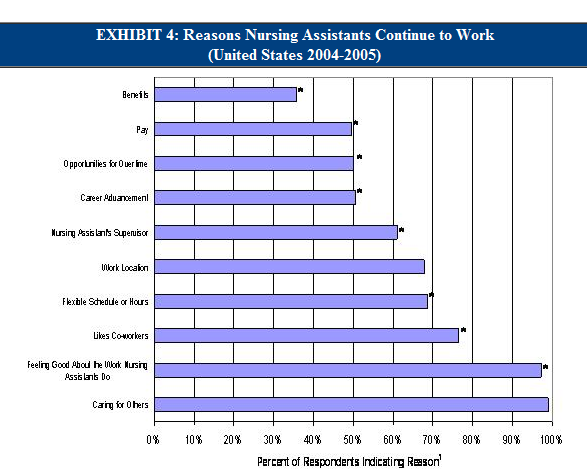Taking a practice test is one of the best ways to both study your Certified Nursing Assistant class materials and prepare yourself for the pressure of taking a standardized test. There are many CNA exam study books available both electronically and in print, and most of them will have at least a few practice questions included, if not a full practice test. There are also practice tests available online, some of which are free, and some for a price. The free ones tend to be PDFs of 50-100 multiple choice questions, with an answer key at the end, whereas paid ones might be offered electronically, timed, and scored professionally to more realistically simulate the actual test taking environment. Here are a few tips for getting the most out of your practice tests to assure your preparedness for the real exam.
- Take CNA Practice Tests More Than Once: With so many practice tests available for free, there is no reason not to try out several. You’ll expose yourself to different questions and get more of a knack for the flow of the multiple-choice portion of the exam. You can also mix and match paid and free practice tests if you want to try yourself in different test taking situations.
- Use Good Study Tools: One site that offers rich study aids for CNA exams and other standardized tests, including a statewise breakdown of CNA requirements, is Pearson VUE. For instance, if you want to know more about what the CNA exam is like in Georgia, look for that state in the drop-down menu. This choice will open a page filled with information about the Georgia CNA exam. You can download a Candidate Handbook, an application form, information about regional test sites and test schedules and more. Pearson VUE is a company that specializes in electronic examination design and administration, so their info on the CNA test is very reliable.
- Use Other People: Your friends, and even people you don’t know at all, can help you prepare for the CNA exam. Ask your friends and family to remind you to study, or give you pop quizzes or flashcards, or even just have them sit and listen while you explain something you’ve learned about being a CNA. Talking through a process out loud has been proven to improve your ability to remember it. Other students in your training courses, and even your professors, can also be good resources for this type of learning. Having a conversation about a particular concept will cement the knowledge in your brain.
Resources for CNA Exam Takers

There are a lot of pretty low-caliber forums and other resources out there for nurse aides getting ready to take their CNA test. If you’re going to pass, you’ll want to use the best resources available, so we went ahead and sorted through some of what’s available online to bring you the following list of reliable sources of practice tests, study guides, and other pre-test tools:
- NNAAP Nurse Aide Practice Written Exam Packet: Through this thirteen-page PDF file, you can try out a practice written exam (including an answer sheet), learn more about the NNAAP content outline and take advantage of the practice exam answer key
- Prometric Practice Exam: This is a 50- question multiple choice practice test with an answer key at the end so you can check how well you did.
- Illinois State Nursing Exam Practice Test: This is a sample test offered entirely online which allows you to choose the number of questions, and automatically checks your answers. There is no time limit on this practice test.
- Study Guide Books: There are dozens of books that promise to help you with your CNA exam available through online retailers, but some of them get quite expensive. Fortunately, Amazon offers free sample pages of some of their books, and the sample pages of CAN test guides are packed with useful tips! This link will lead you to one example, but exploring the sample pages available on books being sold online can give you a wealth of study resources.
- O-Net Job Summary: For a comprehensive list of skills you need to know, and may be tested on, as well as equipment you’ll need to be proficient with, check out O-Net Online. The Bureau of Labor Statistics links to O-Net as the resource for details on job duties for various positions.
- CNA Facts: The state of Illinois provides a long list of facts and resources that CNAs need to know about test taking, maintaining their credentials, and finding employment as a CNA. Some of the information is state-specific, but a lot of it is generally applicable to CNAs anywhere.
It should take about two weeks for your test results to arrive in the mail once you take the test, but you don’t have to wait to start applying for jobs. Simply tell potential employers that you’ve taken the exam and should receive your certification soon, and if they need further reassurance, show them proof that you have completed the state-required training.
Getting a Job After You Pass the CNA Exam
Once you’ve finished taking the test (and hopefully passed it, if you used the resources above), you should immediately start applying for jobs. Searching for employment takes time. The median job hunting time in the U.S. at the end of 2010 was 10 weeks. When there is potential for your job search to take that long, it pays to start as soon as you can, which might even mean applying for jobs while you’re still in training, or before you even start. If you happen to get a job offer while you’re still in training, be honest with your employer and tell them how long you expect to be in training, and ask whether they will be able to hire you upon completion.
The job search is where your networking skills will really come in handy. Your colleagues and professors can serve as portals into the world of professional nurse assisting. Some of them may even know of job openings, so it never hurts to ask whether they can point you to a potential employer or write a recommendation for you.
The U.S. Department of Health and Human Services took a survey about CNA job satisfaction, and the results yielded many reasons why CNAs are attached to their jobs, which are presented in the following chart.

Advancing Your CNA Career
Once you’ve been working for a year or two as a CNA, you’ll probably want to look into advancing your career, which will mean getting further education. CNA work is a good way to test yourself out in the medical field, to see whether working with patients would be a fit for you in the long term. If it is, getting an associate’s degree or bachelor’s degree in nursing could be a good next step. Your experience in medical facilities will prepare you for the type of classes you’ll need to take in those degree programs, and you might be able to keep your job as a CNA while taking online or night classes to become an RN. Some employers offer financial assistance for continuing education in exchange for the promise that you’ll work for them for a certain amount of time after graduating, so they get the benefit of your learning, and you get a degree that can net you higher pay and more exciting work in the future.
Another way to advance your career is to take some business or administrative classes to become qualified for leadership positions within an organization. Getting a supervisory role in the facility you work at will likely result in increased pay, and also looks great on a resume if you decide to move on to bigger, better jobs later on. Some other jobs that you can move into after working as a CNA include:
- Psychiatric Aide: This is a similar position to a CNA, but in a psychiatric facility or mental health ward. The job involves both long and short term care for patients with mental health conditions.
- Sonographer/Radiographer: This uses different skills from a CNA, but is still a medical industry support position. You’ll use medical imaging technology to help doctors diagnose and treat illness.
- Home Health Aide: Working as a home health aide involves almost the same skill set as doing CNA work, but in a different setting. You’ll help disabled or chronically ill patients with daily routines, hygiene, and life skills in their own homes.
The nature of the work makes being a CNA a tough job to maintain in the long run, but a great springboard to help you jump into a career in medical support or even nursing. If you’re ready to get your feet wet, use the links below to find a program that will qualify you for a job as a CNA or other medical professional.

